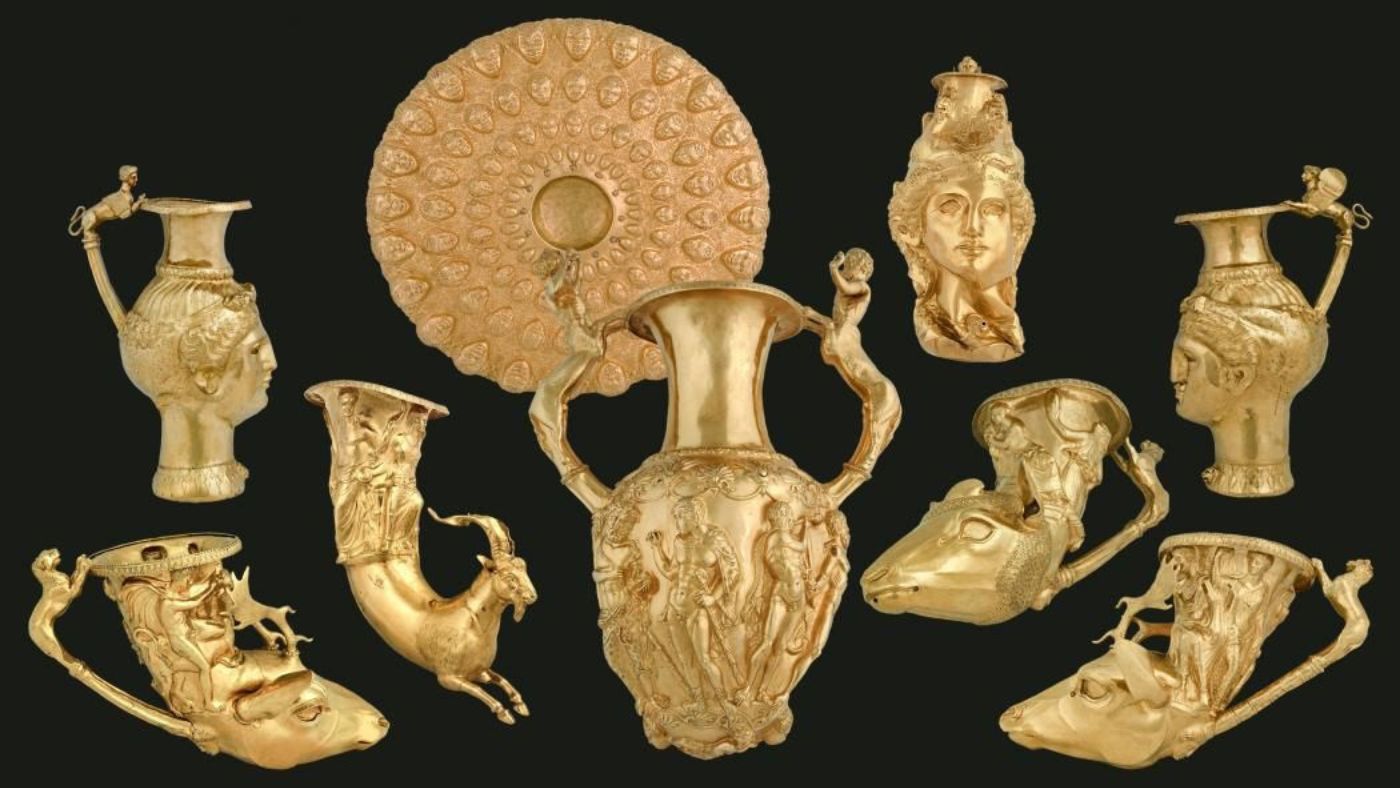Luxury and power: Persia to Greece review – a ‘glittering magpie’s nest’
This new exhibition at the British Museum gives a taste of the Persian and Greek empires

A free daily email with the biggest news stories of the day – and the best features from TheWeek.com
You are now subscribed
Your newsletter sign-up was successful
The ancient civilisations of Greece and Persia were enemies for centuries – and their disagreements didn’t only find expression on the battlefield, said Daisy Dunn in The Daily Telegraph. As this “major new exhibition” demonstrates, they had starkly contrasting attitudes towards luxury goods. From the Persian perspective, “lovely things” such as exquisite jewellery and tableware were exciting, “empowering”, and could be given to others to forge alliances. The Greeks, meanwhile, believed that luxury was corrupting, that these objects “typified the wantonness of the East”; yet “they couldn’t help but be captivated”, and their culture was “steadily infiltrated” by Persian tastes. The show explores artefacts from both civilisations, spanning the period between the Greco-Persian wars of the fifth century BC and the death of Alexander the Great in 323BC. Bringing together a “glittering magpie’s nest” of more than 160 objects from across the Greek and Persian empires, it explores what luxury meant in the ancient world.
The show is divided into three sections, said Jonathan Jones in The Guardian. First off, we are “given a taste of the Persian empire” through objects including a relief of Darius I worshipping the Egyptian god Anubis; then we see how classical Athens “wrestled” with Persian culture even as it sought to mock it; finally, it shows how “cultures really did mingle” following Alexander the Great’s conquest of Persepolis. It’s a fascinating chapter of history, but we are not treated to any “epic” saga. Instead, we get endless displays of “huge, luxurious drinking cups” shaped like horns and known as rhytons. The Persians would fashion them from gold or silver (the Greeks, who considered such extravagance “vulgar”, used clay) and decorate them with “bulls, griffins and human portraits”. They must have been “fantastic to drink from” – but they aren’t “very moving to look at”.
The exhibition design is of the “naffest” order, said Laura Freeman in The Times. The galleries are decked out in “gauze swags”, “glittering curtains” and “purple cabinet liners” – “pure Carry On Artaxerxes”. Nevertheless, the exhibits themselves are astonishing: highlights include a “delightful” perfume flask shaped like a fish; a Greek jug bearing a depiction of “a defeated Persian soldier riding a donkey backwards”; and an “exquisite gold oak-leaf wreath” adorned with “acorns, cicadas and a bee”. The star exhibit is an ancient dinner service known as the Panagyurishte Treasure (c. 300BC). Discovered in Bulgaria in 1949, it includes an immense golden platter and some “ravishing” rhytons shaped like ram and stag’s heads, gold “seeming to pour itself over antlers and ears”. For all its faults, the exhibition leaves you in no doubt that ancient luxury was “powerful stuff” indeed.
The Week
Escape your echo chamber. Get the facts behind the news, plus analysis from multiple perspectives.

Sign up for The Week's Free Newsletters
From our morning news briefing to a weekly Good News Newsletter, get the best of The Week delivered directly to your inbox.
From our morning news briefing to a weekly Good News Newsletter, get the best of The Week delivered directly to your inbox.
British Museum, London WC1 (020-7323 8000, britishmuseum.org). Until 13 August
A free daily email with the biggest news stories of the day – and the best features from TheWeek.com